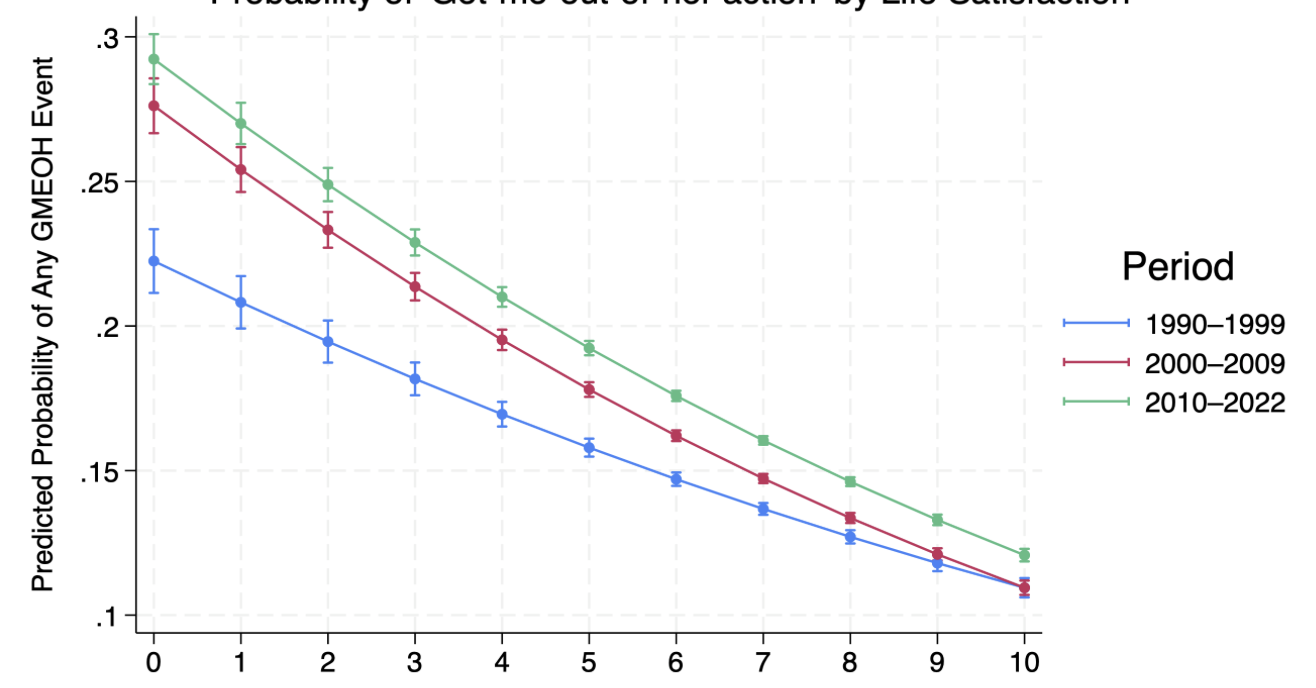In recent months, the CEOs of leading AI companies have grown increasingly confident about rapid progress:
* OpenAI's Sam Altman: Shifted from saying in November "the rate of progress continues" to declaring in January "we are now confident we know how to build AGI"
* Anthropic's Dario Amodei: Stated in January "I'm more confident than I've ever been that we're close to powerful capabilities... in the next 2-3 years"
* Google DeepMind's Demis Hassabis: Changed from "as soon as 10 years" in autumn to "probably three to five years away" by January.
What explains the shift? Is it just hype? Or could we really have Artificial General Intelligence (AGI)[1] by 2028?
In this article, I look at what's driven recent progress, estimate how far those drivers can continue, and explain why they're likely to continue for at least four more years.
In particular, while in 2024 progress in LLM chatbots seemed to slow, a new approach started to work: teaching the models to reason using reinforcement learning.
In just a year, this let them surpass human PhDs at answering difficult scientific reasoning questions, and achieve expert-level performance on one-hour coding tasks.
We don't know how capable AGI will become, but extrapolating the recent rate of progress suggests that, by 2028, we could reach AI models with beyond-human reasoning abilities, expert-level knowledge in every domain, and that can autonomously complete multi-week projects, and progress would likely continue from there.
On this set of software engineering & computer use tasks, in 2020 AI was only able to do tasks that would typically take a human expert a couple of seconds. By 2024, that had risen to almost an hour. If the trend continues, by 2028 it'll reach several weeks.
No longer mere chatbots, these 'agent' models might soon satisfy many people's definitions of AGI — roughly, AI systems that match human performance at most knowledge work (see definition in footnote).
This means that, while the compa




I had a great overall experience at the conference. As a speaker, everything went smoothly for me. The organizers were great and I would definitely recommend them for future events. I would also recommend people attend future EAGxVirtual events.
It's important to emphasize the overall value of remove events. Advantages include reduced greenhouse gas emissions (especially from air travel), lower cost, less time intensive, less time away from family, COVID-safe, no travel visa required (facilitates geographic diversity), and more. I talk about this in my recent Forum post on climate change.
At EAGxVirtual, the geographic diversity struck me as being very good and substantially better than what I recall from in-person EAG events. At one point, I had a great conversation with people from Moscow, Australia, India, Tanzania, & a student in Costa Rica. It's hard to do that at an in-person conference.
Of note, that conversation was spontaneous, with people just walking up in the Gather. Maybe they thought to approach me because they knew I was speaking on Ukraine & nuclear war. But this is why we have conferences - to bring people together with similar interests and give them a chance to interact.
I also had a few good one-on-ones, mostly facilitated by the SwapCard.